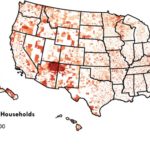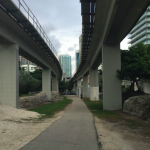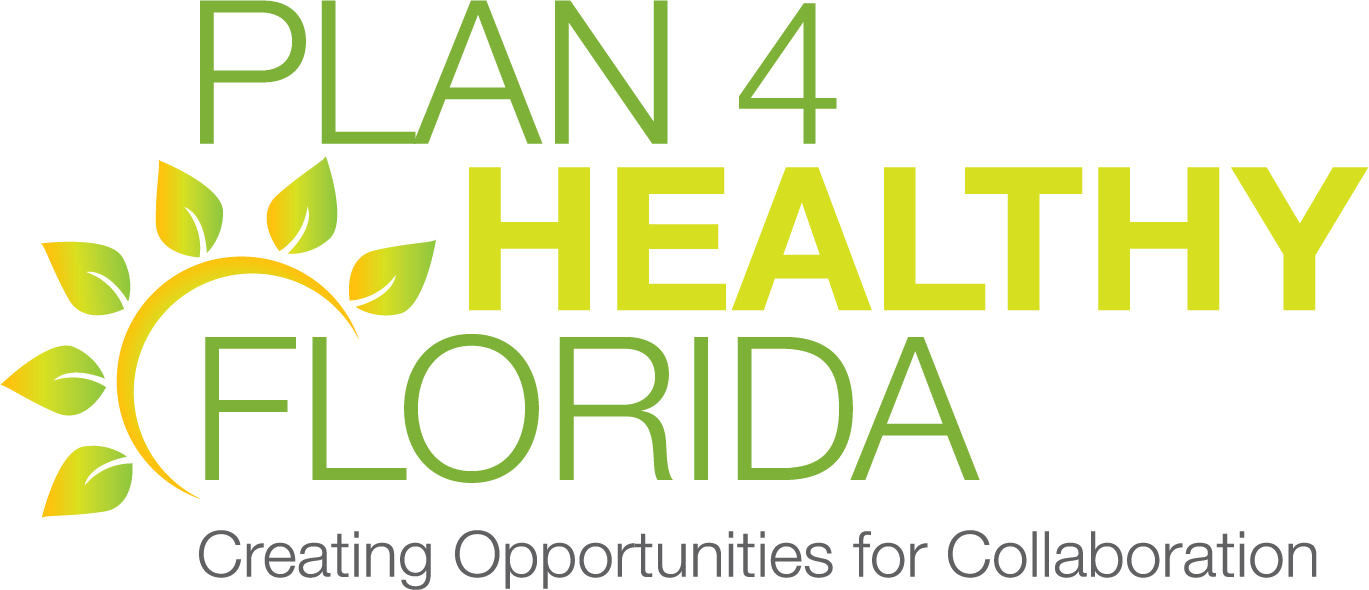May 15, 2022
Tampa General Hospital Launches Community Wellness Initiative: Preventative Health Efforts
On Sunday, Spectrum News released an article announcing Tampa General Hospital (TGH) has partnered with the City of Tampa to launch a multi-year effort to bring preventative health and wellness efforts to the region. The initiative known as, TampaWell, centers on three initiatives for 2022: prescribing exercise and healthy food as medicine, enhancing fitness trails and parks, and developing a community garden and food pantry. The goal of the partnership between the City and TGH is to transform the way people view their health. The CEO of TGH, John Couris, stated, “TampaWell will be the first of its kind in the nation — a wellness revolution and community movement that will improve the community’s health and resilience.”
Read more here.
May 12, 2022
Florida SNAPshot: Overview of Florida’s Food Assistance Program
The Florida Supplemental Nutrition Assistance Program (SNAP) is a safety net that protects individuals from food insecurity. The program is regulated by Food and Nutrition Services of the United States Department of Agriculture at the federal level and the Florida Department of Children and Families at the state level. Each month a Florida SNAPshot is provided to give a quicklook at who participates, program benefits, and how it affects the state economy. Check back each month to see how SNAP is helping Floridians.
Check out the data here.
May 9, 2022
Marion County Health Survey Underway
The Florida Department of Health in Marion County and partners have developed the Marion County Health Survey to gauge community member’s needs when it comes to healthcare. DOH-Marion and partners encourage community members to engage and fill out the 10 minute anonymous survey in order to develop a plan to better serve the community. The survey results are expected to be released in a report this fall.
Learn more and take the survey here.
April 5, 2022
Walmart Health Expands to Florida with Five New Health Centers
Marking the big opening in Jacksonville, Walmart Health has officially expanded their health centers to Florida. Walmart intends to open four more locations across the sunshine state, with health centers located in Middleburg, Poinciana/Kissimmee, Sanford, and Wesley Chapel. The health centers will provide several services including primary care, labs, X-ray/EKG, behavioral health/counseling, dental, optical, hearing, etc. Additionally, all Florida Walmart Health centers will reportedly offer in-person care seven days a week and telehealth on Sundays. The company states the health centers are vital to Florida healthcare, “With only one primary care doctor per 1,380 Florida residents, these Walmart Health centers will help address the demand for care in three major cities…”
Read more here.
April 1, 2022
Burning Trash ‘Poisoning Communities’ in Florida, Complain Says
The Tampa Bay Times reports Florida is home to 10 waste-to-energy plants, four of which are located in the Tampa Bay region. In short, waste-to-energy facilities are used to produce energy by incinerating food, textiles, and other trash. According to the article, 20 percent of Florida municipal waste is burned to produce energy, and Census data illustrates the plants are located in “predominantly Black and Hispanic neighborhoods across the state.” A community in Doral, has been feeling the negative affects of a waste-to-energy plant and placed an estimated 3,000 calls complaining about the smells. However, the Florida DEP has largely disregarded the community’s complaints. As a result, Earthjustice, an environmental law organization, filed a Civil Rights Complaint against the Florida Department of Environmental Protection (FDEP).
Learn more about the story here.
March 10, 2022
House Approves Increased Public Health Funding
The FY 2022 omnibus spending bill has passed, increasing funding for key public health agencies and programs. APHA has released a summary report of investments included in the bill. Among the investments is $200 million in flexible funding for state and local public health infrastructure and $61 million for strengthening the public health workforce.
Read more here.
October 8, 2020
Racism Is The Most Significant Underlying Condition In The COVID-19 Pandemic
A recently released article sheds light on the endemic nature of racism and its disproportionate hold on African Americans in the midst of the current global pandemic, due in part to lack of access to proper health care and social resources. The COVID-19 Community Vulnerability Index (CCVI) has developed 34 social determinants of health, which can be assessed at the US census tract, county, and state levels to inform planning and mitigation efforts.
Read the full article from Poynter here.
Also, check out how your region fares on the CCVI Map here.
June 23, 2020
Bay County Health Survey Tracks Injuries, Illnesses After Hurricane Michael
A recently released health survey shines light on injuries and health issues related to the impact of Hurricane Michael. While 80.5% of people surveyed reported no injuries in their household, 47% of the those who did report injuries were slips, trips, and falls; 45% reported new allergies, 35% new cough, and 28% reported new cases of asthma or respiratory difficulties.
Read the full article from the Panama City New Herald here.
June 23, 2020
Continue Expanding Your Public Health Toolkit
Planners can effectively work to support public health departments on the front lines of COVID-19 and APA has brought together experts to discuss planner’s roles in public health. Join APA’s interactive, virtual course that includes break out discussions with the panelists and fellow attendees as well as in-depth conversations to develop solutions for rebuilding and designing more equitable communities.
Get course details and register here here.
May 2020
US Deaths From Vehicle Crashes Increasing In 30 States
In 2019, an estimated 6,950 people died from vehicle impacts according to the Governors Highway Safety Association, up 5% from 2018. This is the highest number of deaths in nearly three decades. This increase is being attributed to cellphone use while driving, driving while intoxicated, and SUVs. SUV-pedestrian crashes have risen nearly 81% in the last decade alone.
To read the full article, as well as the full report, head over to The Nation’s Health here.
April 2020
Follow APHA’s Updates on COVID-19
The American Public Health Association is keeping a webpage of updates everything related to the novel coronavirus. Stay up to date and informed on the ongoing public health crisis by clicking the link below.
APHA’s Information on COVID-19
April 2020
Mapping How Cities Are Reclaiming Street Space
Laura Bliss at CityLab has provided an article covering the multiple ways cities around the United States are adapting their street spaces to fewer cars and increased use by pedestrians during the crisis. Despite some of these initiatives occurring in the largest US metros, there are plenty of takeaways and options for smaller municipalities as well.
Read more over on CityLab here.
March 11, 2020
Avoiding Coronavirus in the City
Today, Coronavirus was labeled a pandemic by the World Health Organization. Yesterday, CityLab published an article for urban dwellers looking to mitigate risk of contracting the disease. As institutions around the state of Florida prepare for social distancing and procedures for working from home, Floridians can adopt some of these tips and suggestions to lower their personal risk.
To read the full article, click here.
February 19, 2020
The Census Count Has Implications for Public Health
This year, the US Census will take place, and it has enormous consequences for public health. Research, surveillance, funding, and policy-making all use the data provided from the Census. Funding of. programs such as Medicaid, low-income housing vouchers, and food assistance rely on census information as well.
The only way to ensure public health programs are adequately resourced and funded is with accurate enumeration of the Census. However, Florida is one of states with the highest undercount risks, which will impact how much money Florida receives from the federal government over the next decade.
Click here to read the article in full over at The Nation’s Health, a publication of the American Public Health Association.
February 19, 2020
Paris Mayor: It’s Time for a 15-Minute City
As part of Anne Hidalgo’s re-election campaign, she has promised to make Paris a “15-minute city,” where everyone can get to everything they need within a 15-minute walk or bike ride. As Parisians have had to deal with increased traffic and recent strikes from transit-workers, they may have already had a taste of what might come.
The implications of a 15-minute city are astounding, and it begs the question of its feasibility in the state of Florida. What might the public health benefits be of a 15-minute city?
To read more about Anne Hidalgo’s vision for Paris, click here to head over to CityLab.
January 6, 2020
Florida Drops in Annual Healthiest States Ranking
Florida dropped in the new national rankings of the healthiest states in the country in 2019, according to an annual report.
The Sunshine State dropped by four spots from its previous position, coming in as the 33rd healthiest state, according to United Health Foundation‘s yearly America’s Health Rankings report.
The report details state and national data regarding key public health indicators like smoking, access to primary care physicians and uninsured rates. Florida’s strengths included a low prevalence of smoking, high immunization coverage among children and a low cardiovascular death rate. However, those factors were offset by a high percentage of uninsured population, a low rate of mental health providers and a high prevalence of diabetes.
For the full article from Orlando Business Journal, click here.
January 6, 2020
The Unequal Burden of Urban Lead
Andrew Zaleski of CityLab looks at the legacy of lead paint and lining used in our built infrastructure, specifically its impact on urban communities. In this article he looks at its relationship to public health and crime, including a look at Baltimore.
The crisis in Flint, Michigan brought lead in our infrastructure to the nation’s attention, though recently the attention has waned. Though Flint and Baltimore are not in Florida, this article can get Floridians thinking about what kind of pipes deliver water to their homes, or what kind of paint is on our walls.
To read the article on CityLab, click here.
November 18, 2019
As Disasters Worsen, Cities and Researchers Eye Social Resilience
A recent article from CityLab highlighted the importance of cities taking up the task of planning for mental health in the aftermath of disasters. The article quotes information from one survey showing dramatic increases in rates of anxiety, depression, and PTSD for survivors of Hurricane Sandy. CityLab recognized Fargo, ND for being prepared with a psychiatrist available to help residents following severe flooding in 2009.
Facing increases in natural disasters from a changing climate, there has been a lot of focus on resiliency planning in cities in Florida, especially in coastal communities. Perhaps something to include is social resiliency as well.
For the full CityLab article, click here.
October 21, 2019
U.S. Obesity Rates Reach Historic Highs – Racial, Ethnic, Gender and Geographic Disparities Continue to Persist
Trust for America’s Health recently released a report stating obesity in the United States has never been higher. About 1 in 3, or over 100 million Americans have obesity. TFAH also highlighted in their report that there are disparities among who is more likely to be obese, depending on race, ethnicity, gender, and geographic location.
TFAH outlines several policy recommendations in their report, including increasing taxes on sugary drinks, ending federal tax loopholes and business cost deductions related to advertising unhealthy food to children, and increasing funding in Safe Routes to Schools, Complete Streets, and Vision Zero. and pedestrian safety initiatives.
To read more on their website, as well as the whole report, click here.
October 14, 2019
Bay County A Year After Hurricane Michael

One year after Hurricane Michael hit the panhandle, Bay County is still facing a number of issues on the path toward recovery. One of these is public health, with AP highlighting a rise in domestic violence and a lack of mental health services. One of the largest groups affected by this mental health crisis is students, as the school district lacks personnel and funds to accommodate everyone.
Read the full story from the Associated Press here.
September 23, 2019
U.N. Climate Action Summit Opens to Condemnation
Today, activist Greta Thunberg spoke to the U.N. General Assembly condemning the failure of governments and world leaders to address the global issue of climate change. Thunberg’s speech comes only days after one of the largest protests of climate change yet, as youth around the world led demonstrations last Friday against the lack of substantial government action. Addressing world leaders, she said,
“You are failing us, but young people are starting to understand your betrayal. The eyes of all future generations are upon you. And if you choose to fail us, I say: We will never forgive you.”
Health professionals and planners are at the forefront of protecting their communities against the effects of climate change, such as combating sea level rise, reducing air pollution, and creating more sustainable cities for everyone. As the global youth begin to voice their concerns more loudly than previous generations, health professionals and planners should do their part to listen and take action as well.
To read more on the Climate Action Summit and to watch Thunberg’s speech, click here.
September 23, 2019
Parking Reform Will Save the City
Donald Shoup recently wrote an article for CityLab outlining his concerns over U.S. cities’ preference for automobiles and parking lots. Shoup makes his arguments for ways to fix the parking problem. In regard to health, parking lots are one of the biggest impediments to healthier forms of pedestrian transportation, such as walking or cycling. A reduction in the number of cars means cleaner, healthier cities for all of us.
Read more from Shoup on CityLab here.
August 26, 2019
Call for Applications: 2020 Culture of Health Prize
The Robert Wood Johnson Foundation (RWJF) is now accepting applications for the 2020 RWJF Culture of Health Prize. The Culture of Health Prize is an annual award that recognizes communities working together to advance health, opportunity, and equity for all. Communities can submit for a chance to share their accomplishments with the nation, and up to 10 finalists will receive a $25,000 cash prize. The application deadline is November 4, 2019.
SUBMISSION CRITERIA
Applications will be judged based on the following criteria:
- Defining health in the broadest possible terms
- Committing to sustainable systems changes and policy oriented long-term solutions
- Creating conditions that give everyone a fair and just opportunity to reach their best possible health
- Harnessing the collective power of leaders, partners, and community members
- Securing and making the most of available resources
- Measuring and sharing progress and results
Submissions representing the work of a single organization will not be considered. With the exception of previous prize winners and 2019 finalists, all past applicants are eligible to reapply for 2020 (2019 finalists may reapply in 2021).
More information can be found here.
(From planning.org)
August 7, 2019
Where Americans Lack Running Water, Mapped
“Plumbing poverty”- a lack of access to running water, a flush toilet, and an indoor bath or shower- is skewed across racial and socioeconomic lines. In the US alone, over 460,000 households or nearly 1.5 million people lack a plumbed connection to drinking water or sewers. Planners and health professionals alike must recognize the danger to health and safety from an insecure water supply, and how this hinders development and progress in communities.
To view the article and maps on CityLab (with a link to the study), click here.
July 18, 2019
Florida Department of Health Seeks Community Champions
The Florida Department of Health is seeking to recognize communities taking a Health in All Policies approach to comprehensive planning. Local governments are invited to share best practices in fostering healthier places for a chance to be recognized as a Healthy Community Champion!
The deadline to submit an application is August 15, 2019.
More information on the program, and links to submit the application can be found here.
June 13, 2019
Gov. DeSantis Signs Bill Expanding Testing and Use of Autonomous Vehicles
Self-driving vehicles will be able to operate in Florida without a human on board under a bill signed by Republican Gov. Ron DeSantis, who signed the measure on June 13 at a test track for autonomous vehicles in Auburndale. The governor says he wants companies testing the vehicles to move to Florida.
The new law takes effect July 1. It will allow self-driving cars without humans on all roads as long as the vehicles meet insurance and safety requirements outlined in the new legislation.
Read more about the new law here.
June 13, 2019
Panhandle Children Face Mental Health Crisis
Following last year’s Hurricane Michael, many students have been experiencing symptoms of mental distress, some breaking down in tears upon hearing thunderstorms over the past winter. According to a survey done through the school district this spring, more than of third of Bay County School District’s students and staff likely have clinical symptoms of depression, anxiety, or PTSD. The school district has not received any state or federal funding specifically for mental health needs related to Michael’s impact.
Click here to read more about the mental health crisis in the Panhandle.
June 12, 2019
“Park Starved” Little Havana’s New Revitalization Plan Will Soon Go into Action
A plan for the future of the historic Little Havana neighborhood was released Tuesday after two years of preparation.
Little Havana is low on green space: only 1.6 percent of Little Havana’s total land is dedicated to open space. A report from PlusUrbia and the National Trust described the neighborhood as “park starved.” The health foundation is funding parts of the plan, including Live Healthy Little Havana, a community led initiative to improve health in the community. In collaboration with Urban Impact Lab, Jose Marti park will undergo restorations to become the “hub of health” in the community.
Read more about the Little Havana Restoration Plan here.
June 1, 2019
Northeast Florida Community Health Assessment Spotlights a Lack of Access to Care
The Jacksonville Nonprofit Hospital Partnership’s latest Community Health Needs Assessment reports the lack of access to care is the leading threat to citizens’ health. After lack of access, the report cited poverty, obesity, and lack of physical activity. These issues disproportionately impact veterans, seniors, children and the LGBTQ community, according to the report.
Planners should consider how someone might have to travel to get reach healthcare, especially in case of an emergency. Lack of Access to Care should be considered another reason to combat urban sprawl and inefficient land uses.
Click here to read more about the Community Health Needs Assessment Report.
May 27, 2019
CDC: Falling Is the Leading Cause of Death for the Florida Elderly
Data released in 2017 by the Centers for Disease Control and Prevention shows nearly 3,000 adults over the age of 55 died from falling in Florida that year. Half of those deaths occurred in adults over the age of 85. Planning our built environment with the elderly in mind can help prevent these types of falls outside the home. For example, Singapore has a system that allows the elderly to extend the length of time at crosswalks, to ensure they can cross safely.
To read more about the findings from the CDC, click here.
May 24, 2019
Knight Kiplinger Plans a New Urbanist Town in Martin County, Florida
Inspired by health-oriented New Urbanist communities such as Seaside, Knight Kiplinger, an economic journalist at the head of Kiplinger Financial Media Company in Washington, D.C., is planning a similar community in Martin County. New Urbanist communities typically discourage automobile use and promote walkability by reconsidering land use in more efficient and health-oriented patterns. The town will be located at Pineland Prairie, where the Kiplinger family has owned land for decades.
You can find more information on Kiplinger and the project here.
*If you are attending the 2019 Florida Planning Conference, Knight Kiplinger will be speaking about this project at his session: Pineland Prairie: A Better Human Environment, A Better Natural Environment- Connected. For more details about this session, click here.
May 24, 2019
Many Residents in Broward County Still Using Septic Tanks, Despite Sewer Access
Many Broward County homeowners are still operating with septic tanks even though sewers are available near their homes — a situation that endangers both the environment and public health. Maps from the Florida Department of Health, which oversees septic tanks in the state, show more than 50,000 parcels in the county that could still be on  septic, with as many as half of those in areas where sewer service is available.
septic, with as many as half of those in areas where sewer service is available.
Countywide regulations require that property owners connect within six months once sewer lines are laid, but many people simply refuse. They would rather pay for a service they’re not getting than put out even more money to connect to the sewer lines — a cost that frequently runs between $5,000 and $10,000.
Given the state information, county officials say more needs to be done to make sure people connect if they can. They are proposing changes that would make it easier to go after people who don’t connect and also offer incentives to make the cost more manageable.
Read more here.
May 22, 2019
Florida’s Seniors Are Increasingly Depressed and Drinking More
 Although Florida seniors are living longer, they are smoking, drinking and experiencing depression more than the older population of other states, according to a new national health report. The America’s Health Rankings Senior Report found more than 9% of Florida’s 4.2 million seniors said they drink excessively, and more than 10% said they smoke regularly. The United Health Foundation’s 2019 America’s Health Rankings list Florida as the 29th healthiest state for seniors in the United States.
Although Florida seniors are living longer, they are smoking, drinking and experiencing depression more than the older population of other states, according to a new national health report. The America’s Health Rankings Senior Report found more than 9% of Florida’s 4.2 million seniors said they drink excessively, and more than 10% said they smoke regularly. The United Health Foundation’s 2019 America’s Health Rankings list Florida as the 29th healthiest state for seniors in the United States.
Click here for more information.
May 15, 2019
New Coast-to-Coast Bike and Walking Path Announced
The Rails-to-Trails Conservancy recently announced plans to construct a cohesive, coast-to-coast vehicle-free path, to be known as the  Great American Rail-Trail. The trail will run through the northern portion of the country, passing through 12 states: Maryland, Pennsylvania, West Virginia, Ohio, Indiana, Illinois, Iowa, Nebraska, Wyoming, Montana, Idaho, and Washington. This trail was designed after a year-long assessment of data and various path options, as well as existing needs for current connectivity. It is hoped that the trail can be completed in a couple of decades.
Great American Rail-Trail. The trail will run through the northern portion of the country, passing through 12 states: Maryland, Pennsylvania, West Virginia, Ohio, Indiana, Illinois, Iowa, Nebraska, Wyoming, Montana, Idaho, and Washington. This trail was designed after a year-long assessment of data and various path options, as well as existing needs for current connectivity. It is hoped that the trail can be completed in a couple of decades.
Click here for more information.
May 9, 2019
St. Petersburg, FL Approves Complete Streets Plan
St. Pete has become the latest community in Florida to recognize the  need for complete streets, approving their Complete Streets Implementation Plan. This plan aims to act as a guide for the improved design and implementation of local roads for the next two decades. including greater accessibility for cyclists and pedestrians, BRT, and increased use of traffic data to improve overall experience for every mode of transport.
need for complete streets, approving their Complete Streets Implementation Plan. This plan aims to act as a guide for the improved design and implementation of local roads for the next two decades. including greater accessibility for cyclists and pedestrians, BRT, and increased use of traffic data to improve overall experience for every mode of transport.
Click here for more information.
May 8, 2019
Will Florida Residents Be Safe in the Next Disaster? Report Says Maybe
The National Health Security Preparedness Index, a report issued by the Robert Wood Johnson Foundation, analyzed over 100 measures for individual states and the nation as a whole to determine emergency and disaster preparedness. Florida scored 6.7 out of 10, which matches the national average. This score indicates that while the state does score higher on such indices as security surveillance and information management, vast improvements can be made in other indices, including actual healthcare delivery, community planning coordination, and countermeasure management.
Click here for more information.
May 8, 2019
Using Walking Audits for Better Communities
While those within the planning profession already recognize the importance of being knowledgeable about one’s community and  infrastructure, everyday citizens are now being exposed to its importance as well through Walking Audits. Walking Audits are designed to showcase the various assets and drawbacks of their community, through walking tours. For residents in communities that are particularly auto-focused, these walks can help in encouraging community involvement, as well as enabling understanding of the importance of pedestrian and cycling infrastructure.
infrastructure, everyday citizens are now being exposed to its importance as well through Walking Audits. Walking Audits are designed to showcase the various assets and drawbacks of their community, through walking tours. For residents in communities that are particularly auto-focused, these walks can help in encouraging community involvement, as well as enabling understanding of the importance of pedestrian and cycling infrastructure.
Click here for more information.
April 15, 2019
Tampa Streetcar Sees Big Boost in Ridership
Tampa has been working to increase the popularity of their streetcars, and after various approaches, have succeeded in almost tripling the  ridership, in just six months. Utilizing a state grant of $2.7 million, Tampa has been able to increase the frequency of service, as well as getting rid of fees. This has increased equity and accessibility to an alternative mode of transportation, particularly to popular and economically thriving areas of town, including Ybor City and downtown.
ridership, in just six months. Utilizing a state grant of $2.7 million, Tampa has been able to increase the frequency of service, as well as getting rid of fees. This has increased equity and accessibility to an alternative mode of transportation, particularly to popular and economically thriving areas of town, including Ybor City and downtown.
Click here for more information.
April 15, 2019
Partnership for a Healthier America Announces Newest Healthier Campus Initiative Partners
The Partnership for a Healthier America announced the addition of 12 new campuses to their roster of 38 partner campuses. Included on this list was Florida State University, which joined the ranks of several other Florida universities. PHA campus partners advocate for healthier living and lifestyles, through a number of different programs and initiatives, including bike share programs, nutritious food offerings, and accessible health services.
Click here for more information.
March 28, 2019
2019 Community Health Needs Survey
Residents of Hillsborough, Pasco, Pinellas, and Polk Counties are being asked to participate in a community health needs survey so as to assist local hospitals, public health departments, and other health organizations. Contributions will be used to help assess health concerns, and solutions. The survey is available until May 1.
Click here for more information.
March 26, 2019
US News and Aetna Release Healthiest Community Rankings: St. John’s County Included in Rankings
US News, in collaboration with the Aetna Foundation, have released a new ranking of the healthiest U.S. cities. Taking into account such things as housing availability, economic performance, and education systems, this ranking provides a more holistic, comprehensive ranking of overall quality of life. This ranking used the framework developed by a US Department of Health and Human Services Committee, which scores communities on dozens of indicators across several categories. Out of 500 ranked communities, only St. Johns County, Florida made the cut. The county scored especially high in population health, economy, community vitality and infrastructure.
Click here for more information.
March 12, 2019
Preventing Crime Through Parks
Research and empirical evidence continues to show the extent to which community parks can benefit neighborhoods, especially those  within more urbanizes areas. Neighborhoods in New York City with a park, for example, experienced a reduction in crime by as many as 200 felonies per year, or 2-3 crimes per week. Publicly accessible green space not only allows for increased social ties, but also more eyes on the street. The revitalization of spaces which were previously vacant, or considered brownfields, is particularly beneficial. Researchers in Philadelphia found that through space beautification and park installation in former brownfields, gun violence decreased, while over-all public perception of safety went up.
within more urbanizes areas. Neighborhoods in New York City with a park, for example, experienced a reduction in crime by as many as 200 felonies per year, or 2-3 crimes per week. Publicly accessible green space not only allows for increased social ties, but also more eyes on the street. The revitalization of spaces which were previously vacant, or considered brownfields, is particularly beneficial. Researchers in Philadelphia found that through space beautification and park installation in former brownfields, gun violence decreased, while over-all public perception of safety went up.
Click here for more information.
March 5, 2019
Two Florida Communities Named Runner-up in APHA’s Healthiest Cities Contest
APHA has just released the winner’s for their “Healthiest Cities and Counties” Contest, which aims to challenge communities to strive for  health through economic sustainable, inclusive, and equitable solutions. Both Hillsborough County and Little Havana have been named as runner-ups. Hillsborough received praise from APHA for their web-based Health Atlas, in order to improve poor food index rankings. The Health Atlas “map[s] health and transportation indicators to identify gaps in food access and walkability.” Little Havana has been working to take a holistic approach inn establishing a trusted healthy network within the neighborhood, through the use of “increased health service access, complete street assessments, and crime reduction through environmental design.”
health through economic sustainable, inclusive, and equitable solutions. Both Hillsborough County and Little Havana have been named as runner-ups. Hillsborough received praise from APHA for their web-based Health Atlas, in order to improve poor food index rankings. The Health Atlas “map[s] health and transportation indicators to identify gaps in food access and walkability.” Little Havana has been working to take a holistic approach inn establishing a trusted healthy network within the neighborhood, through the use of “increased health service access, complete street assessments, and crime reduction through environmental design.”
Click here to read more.
February 12, 2019
Who Will Benefit From Miami’s Underline?
With the Miami Underline breaking ground in November of last year, development is now underway for the 10-mile  mixed use infrastructure project and park, which will connect South Miami, Coral Gables, and downtown Miami. While many are enthusiastic about the project, there is some concern that it will result in increased housing prices within the vicinity, in an already very expensive market. While the city has implemented an affordable housing master plan, and units within nearby apartments are designated as affordable, gentrification could continue to push out lower-income residents. Project managers are hosting public meetings to address these concerns, along with density issues.
mixed use infrastructure project and park, which will connect South Miami, Coral Gables, and downtown Miami. While many are enthusiastic about the project, there is some concern that it will result in increased housing prices within the vicinity, in an already very expensive market. While the city has implemented an affordable housing master plan, and units within nearby apartments are designated as affordable, gentrification could continue to push out lower-income residents. Project managers are hosting public meetings to address these concerns, along with density issues.
Click here for more information.
January 31, 2019
Measuring Housing Insecurity in the American Housing Survey
The American Housing Survey has released their most recent data. The AHS aims to provide a wide-ranging and comprehensive overview of topics, including policy issues, eviction rates, quality, and cost burdens. Through its data, it aims to reduce homelessness and housing insecurity, by presenting evidence concerning the links between housing affordability, public health, and the overall effects stemming from lack of adequate housing.
Click here for more information.
January 24, 2019
Florida Still the Most Dangerous State for Pedestrians
The Advocacy Group Smart Growth for America recently released their findings from the  Dangerous by Design report, which compares pedestrian safety among various cities. For the fourth year in a row, Florida was deemed the most dangerous state overall for pedestrians, with the previous two years being deadlier than the preceding. Minorities, the elderly, and those who lack adequate and safe transit and transportation systems are most susceptible to dangerous pedestrian conditions and harm. The Tampa and St.Pete/Clearwater areas are particularly dangerous, ranking ninth in the city ranking. There has been debate between citizens, city planners, and local governments over how best to mitigate danger.
Dangerous by Design report, which compares pedestrian safety among various cities. For the fourth year in a row, Florida was deemed the most dangerous state overall for pedestrians, with the previous two years being deadlier than the preceding. Minorities, the elderly, and those who lack adequate and safe transit and transportation systems are most susceptible to dangerous pedestrian conditions and harm. The Tampa and St.Pete/Clearwater areas are particularly dangerous, ranking ninth in the city ranking. There has been debate between citizens, city planners, and local governments over how best to mitigate danger.
Click here for more information.
January 23, 2019
What Tampa’s Modern Reinvention Says About the Future of American Cities
Planners and residents of Tampa are working to create a city that is not only innovative and  welcoming to young professionals, but one which also encourages well-being, public health, and increased community socialization. Much of this revolves around development and revitalization occurring along the waterfront of Tampa, which was previously neglected. The ultimate goal is for Tampa to have the first WELL-certified neighborhood in the world, which measures and monitors features of the build environment pertaining to health, comfort, and well-being.
welcoming to young professionals, but one which also encourages well-being, public health, and increased community socialization. Much of this revolves around development and revitalization occurring along the waterfront of Tampa, which was previously neglected. The ultimate goal is for Tampa to have the first WELL-certified neighborhood in the world, which measures and monitors features of the build environment pertaining to health, comfort, and well-being.
Click here for more information.
January 11, 2019
Florida Sets a Zero Traffic Fatality Target
Florida has become the first state to adopt a goal of zero traffic and pedestrian deaths per year. Crafted in accordance with the 2018 Highway Safety Plan, the outlined goals and policies look to curtail what remains a consistent problem, especially for pedestrians and cyclists; Florida ranks as the deadliest state for both modes of transportation, and ranks poorly overall for traffic safety.
Crafted in accordance with the 2018 Highway Safety Plan, the outlined goals and policies look to curtail what remains a consistent problem, especially for pedestrians and cyclists; Florida ranks as the deadliest state for both modes of transportation, and ranks poorly overall for traffic safety.
Click here for more information.
January 11, 2019
Call for Abstract: APHA’s 2019 Annual Meeting and Expo on Aging and Public Health
From the APHA website:
We welcome empirical research or practice-related presentations, using quantitative, qualitative, or mixed methods. Abstracts should be no more than 250 words. All abstracts must have direct relevance to aging or older adults.
Submissions may be for poster, oral, or roundtable session formats; please note the desired format on the abstract form. If your abstract is accepted for presentation, you must become an individual member of APHA and register for the Annual Meeting in order to present. Abstracts cannot be published in any scientific journal or presented at any other conference prior to the APHA Annual Meeting.
Deadline is February 19, 2019
More information can be found here.


